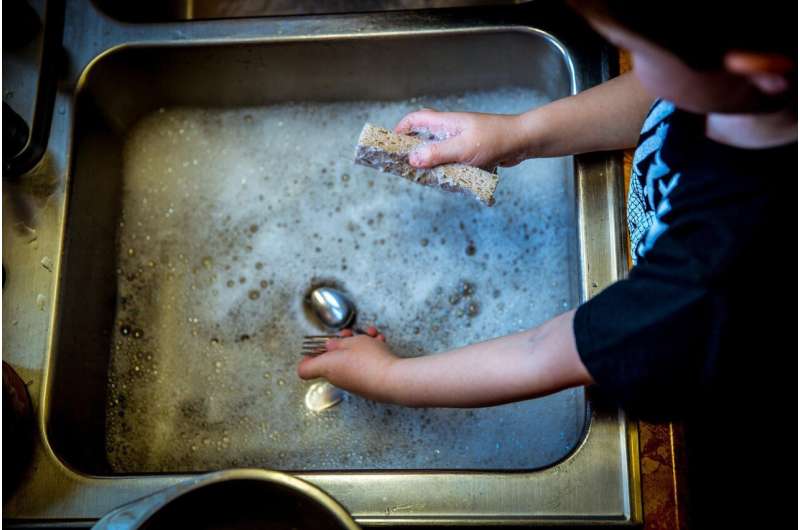Credit: Pixabay/CC0 public domain
The time young women and girls spend on unpaid housework is contributing to the gender pay gap, according to new research from the Universities of East Anglia (UEA), Birmingham and Brunel.
The research shows that women’s later employment rate is influenced by the burden of this care burden in childhood, which contributes to the existing inequality gaps in the countries studied.
The study, “The contribution of girls’ longer hours in unpaid work to gender gaps in young adult employment: Evidence from Ethiopia, India, Peru and Vietnam,” is published today in the journal Feminist Economics.
The research team examined data from the Young Lives project, a longitudinal cohort study of afterlife child poverty of 12,000 children from India, Ethiopia, Peru and Vietnam. The Indian sample data is from the states of Andhra Pradesh and Telengana.
The research team followed the lives of children aged 8 to 22 and analyzed the employment rate in all paid employment and in each sector (including agriculture), type of work and wages.
According to UNICEF, girls spend 40 percent more time on household chores than boys. Unequal parts of domestic work have a major impact on girls and are associated with greater inequalities, such as access to tap water, which determines the amount of labor needed.
The amount and nature of housework influences girls’ school attendance, shortens their study time and can thus limit their future employment prospects.
Policies to address gender inequality in paid work should take into account unpaid work in childhood, said Dr. Nicholas Vasilakos, of UEA. Investing in youth employment is at the heart of development agendas and would help countries meet the UN Sustainable Development Goal of Decent Work for All by 2030.
dr. Vasilakos, associate professor of sustainable business economics and public policy at UEA’s Norwich Business School, said: “Inequal participation in domestic work starts at an early age, and increasing disparities over time suggest gender-based trajectories.”
Prof Fiona Carmichael, professor of labor economics at Birmingham Business School, said: “Longer hours of unpaid housework leaving girls less time to study can therefore limit their future lives by limiting employment opportunities.
“This confirms that the burden of care for women from their larger share of the household starts already in childhood.”
At the age of 22, there was already a gender gap in employment (85.72 percent of men versus 70.64 percent of women). In addition, women’s hourly wages at $1.46/hour for women are significantly lower (p=0.001) than men’s at $1.77/hour.
Domestic work is negatively related to job quality — both job types and income — said Dr. Christian Darko, Lecturer in Applied Business and Labor Economics at the University of Birmingham.
Prof Shireen Kanji, Professor of Human Resource Management at Brunel University London, said: “It seems that compared to men, women’s employment is probably more driven by lack of choice or need, and characterized by fewer opportunities for well-paid workers. better quality jobs.”
However, the study found that girls whose parents have higher aspirations for them at age 12 have better chances of getting a better-paying job at age 22.
Employment and well-being often do not correlate in India, Ethiopia, Vietnam and Peru
The contribution of girls’ more hours of unpaid work to the gender gap in employment for young adults: Evidence from Ethiopia, India, Peru and Vietnam, Feminist Economics (2022). DOI: 10.1080/13545701.22022.2084559
Quote: Gender pay gap linked to unpaid childhood chores (2022, July 21) retrieved July 21, 2022 from https://phys.org/news/2022-07-gender-gap-linked-unpaid-chores.html
This document is copyrighted. Other than fair dealing for personal study or research, nothing may be reproduced without written permission. The content is provided for informational purposes only.

